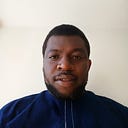The Blind Watchmaker: Why the Evidence of Evolution Reveals a Universe without Design
Our brains have been built by natural selection to assess probability and risk, just as our eyes have been built to assess electromagnetic wavelength. We are equipped to make mental calculations of risk and odds, within the range of improbabilities that would be useful in human life. …. If we were biologically capable of living for a million years, and wanted to do so, we should assess risks quite differently. We should make a habit of not crossing roads, for instance, for if you crossed a road every day for half a million years you would undoubtedly be run over.
This was by far the most ambitious and fascinating read yet on the theory of evolution and big history, yet. Despite how long ago the book was written, the Evolutionary Biologist Richard Dawkin provided an all-encompassing theory to suggest why we might be living in a world without design.
He argues that the unit of life emerged from the Goldilocks conditions that enable that sense of agency present in living things. These unit have been able to evolve by the accumulation of small changes over time. These small changes are the natural responses of a living being to the environment and become evident over an extremely long time. The living unit accumulates and translates this information (of small changes) over time and uses it to further its sole motivation; which is to survive.
He goes further to argue that we are unable to appreciate this fact due to limitations set by natural selections. According to the book, Evolution has equipped our brains with a subjective consciousness of risk and improbability suitable for creatures with a lifetime of less than one century. The book further implies that in evolving, our senses have created some form of virtual reality of what this experience called life is. So our concept of mind, self spirit beings and those intangibles that we feel makes us human are just what we conjured in a bid to create a sense of high life that should be pursued by all means.
It is an interesting but somewhat dangerous thought. In the origins of political order, Francis Fukuyama writes “Since virtually all human societies organized themselves tribally at one point, many people are tempted to believe that this is somehow a natural state of affairs or biologically driven. It is not obvious, …No animal species behaves in this manner, nor do human beings in band-level societies. The reason that this form of social organization took hold across human societies was due to religious belief..”. I am a Christian and very personal experiences make me hold on to my faith, despite some contrary evidence. Most of these things are intangibles, providing a sense of contentment in life, and thus cannot be measured. But if something can’t be measured, does it cease to matter? Our love for our children cannot be measured, but motivation on that basis is a perfectly logical argument.
Despite how robust his arguments were, I always fail to see the solidity of the atheistic opinion, especially in the absence of a credible alternative. If more people begin to subscribe to a notion without a credible alternative, societal norms begin to break down. What holds together society at its core is the belief of a higher being or greater laws governing our day to day life, capable of reprimanding when we fail to comply. And constant attack without defining an alternative will slowly chip to pieces the foundation upon which our societies are built on.
